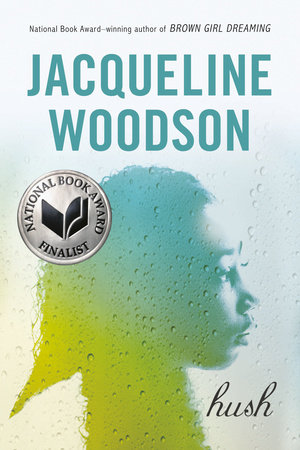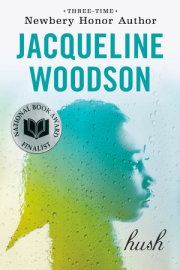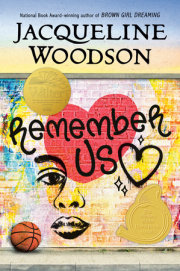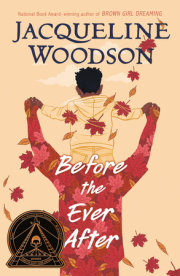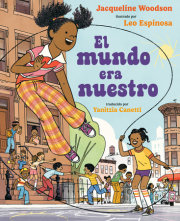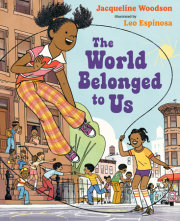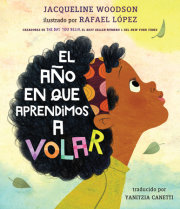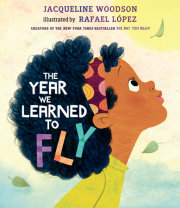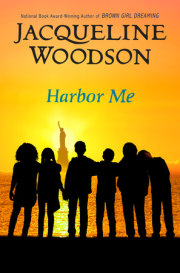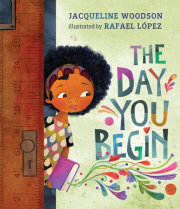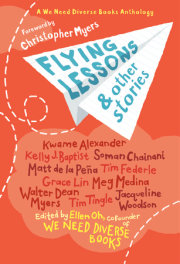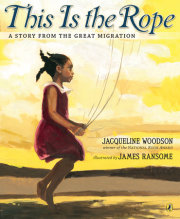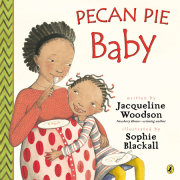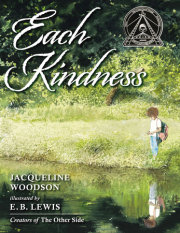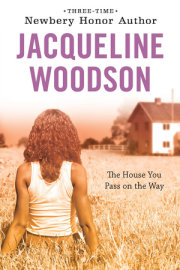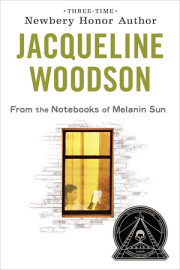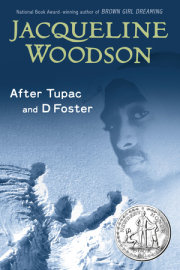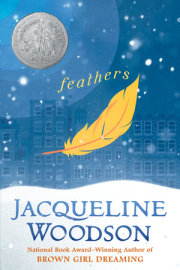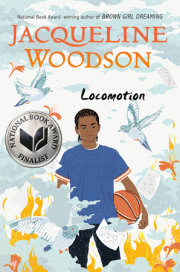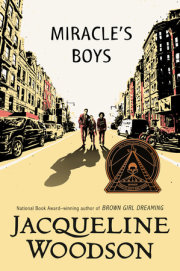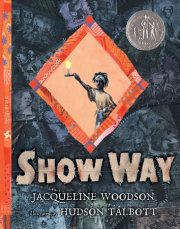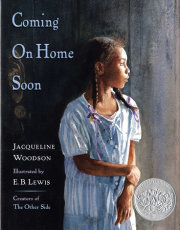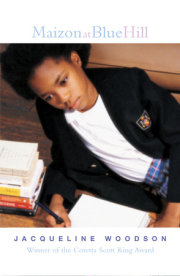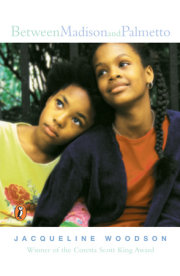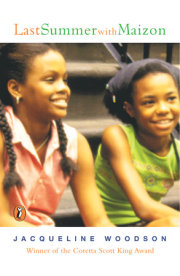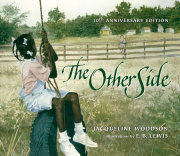CHAPTER 4In fifth grade our teacher asked us to write about the most wonderful thing we’d ever seen. I sat in class tapping my pencil against my head trying to remember the colors of butterflies’ wings and how the deep blue-green water of Glenwood Springs made you think of something that went on forever. But none of the things that came to my mind was the prettiest. When I started writing, it was about my father, the year he won the police department’s Medal for Bravery for rescuing a mother and her baby son from a man who was holding them hostage. He’d been a cop all of my life, and I had never really thought much about what he did or what it meant. On the morning of the ceremony, my father wore his other uniform—a dark jacket with a leather belt, brass buttons and gold epaulets at the shoulders. When he walked into the living room, my sister and I stopped fighting over the TV remote and stared at him. We had never seen him dressed this way, and he looked like the tallest, proudest, most beautiful man that ever lived.
Why are you copper pennies sitting there with your mouths opened? he said laughing. You act like you’ve never seen me before in your life.And we hadn’t—Not like that. Not standing there looking like someone who would protect us from the world ending. Someone who could, if he had to, push us behind him then stop an oncoming bullet with his hand.
Daddy…, my sister said,
you look awesome.
That morning, as I sat there between Cameron and Mama in the audience listening to the lieutenant go on about my father’s bravery, I felt like I was someone special. Like all of us were special.
Things fall apart. I know this now. Sometimes it happens fast—like the time my sister came down wrong on her ankle and missed a whole season of cheerleading. What I remember is her sitting in her room every night, crying. Or the time my mother cut her finger with a steak knife. While my father rushed her to the hospital, Cameron and I were left to finish dinner, get it on the table and sit there for two hours, staring at our food. Scared that Mama would come back one finger short of the hand she had left with.
But sometimes things fall apart slowly. When the lieutenant pinned that medal to my father’s chest, it was the beginning of the Green ending. Months later, my father would say
When I saw you all sitting in that front row cheering me on, some little seed started to grow in my brain. He said it was a seed of faith in his family and the Denver Police Department. A seed that made him believe in the possibility of perfection . . . and trust . . . and loyalty. As my father looked out at us from the stage while reporters flashed pictures and other cops shook his hand, he smiled and winked at me. I winked back, not knowing that what was growing in his mind was a seed of justice that would one day lead to the biggest decision he’d ever have to make in his life.
Mama raised her hand to her lips and blew Dad a kiss. Then we were being called up to the stage, all of us, hugging Daddy and smiling for the press. Perfect, one reporter said. Absolutely perfect.
And for years, I believed we were.
The night after the shooting, I came downstairs to find my father sitting on the couch staring into the darkness. I sat beside him and we talked quietly—about school and friends and Cameron and Mama. We talked around the shooting until he made me go back to bed. After that, I came downstairs every night, after Mama and Cameron had gone to bed. Maybe it was because I insisted on sitting awhile in the dark with him night after night. Maybe it was because I was his baby daughter, the one who’d still be there after my big sister was gone. Or maybe it was just because he needed someone to talk to. For whatever reason, my father began to reveal what happened in bits and pieces. What I learned in those late-night talks was that my father had witnessed a murder. A fifteen-year-old boy had been killed by two cops who were close to our family. My father wouldn’t tell me their names at first, but he said over and over, Something’s got to be done, Toswiah. It isn’t justice. It isn’t right.
I knew something had to be done, but more than that I knew if the cops were in my daddy’s precinct, they’d been at one of my birthday parties, had given me a lift home from school, had pulled my braid at some point in my life and handed me a toy or book or lollipop. I’d grown up with the cops in Denver and couldn’t imagine any of them shooting a boy. Again and again I saw the ghost-boy falling but couldn’t see the face of the cop who held the gun. Again and again I tried to think of which cop it could be until the hand holding the gun followed me into my dreams, to school, even to the bathroom in the middle of the night.
The boy was an honor student, the only child of a high school English teacher. A single mom. The boy was only in tenth grade but was already getting mail from colleges. My father knew all this from newspaper reports he’d read and research he’d done. Even though the cops had said they thought the boy reached for a gun, my father knew it wasn’t true. As my father talked about the boy, he became more real. I didn’t know his name, but I felt like I didn’t have to. He was black and I was black, and maybe somewhere along the way we would’ve met. Maybe we would’ve become friends. I imagined the boy holding a basketball above his head, saying Like this, Toswiah. Just let it roll off your fingers and fly. I imagined us riding bikes around the neighborhood, stopping to buy ice- cream cones double-dipped in rainbow sprinkles. When he smiled, his whole face melted into something soft and amazing. People waved and smiled back. People called out to us. Hey Raymond! Hey Toswiah! I imagined his mother walking into his empty room and calling his name, standing there all night long waiting for him to answer.
My father said, What would you do, T?
I shrugged, and stared down at my hands. What’s the right thing, Daddy?
Exactly, he said, frowning into the darkness. He sighed and kissed my head. Both choices seem so damn wrong..
Then he sent me off to bed.
I lay in bed and stared up at the ceiling all night. I thought about my father—how the love I felt for him some days made my throat hollow out. I thought about his smile, the way it always came, shy and slow, and the way his eyes lit up when me and my sister appeared suddenly, riding our bikes alongside of his patrol car. I thought about the way he used to braid my hair on Sundays, how his hands felt soft and sure. Wherever he went, I’d go. I couldn’t imagine a world, a life, a day without him.
I closed my eyes then, trying to imagine what it felt like to watch someone die, someone innocent and scared. Pictures flashed in and out of my brain—that boy crying out then falling; my father running to him; the other cops standing there, their hands dumbly hanging at their sides. The echo of the gunshots. Everyone’s surprise.
Outside my window, the moon hung down low, close to the mountains. Every now and then, a cloud moved past it.
Cops murdering. Cops murdering a black kid. White cops murdering a black kid. My father turning at the first shot to see the kid standing there, his arms raised above his head. The second and third shots. The kid falling. My father’s face, first surprise, then anger, then fear maybe—that his friends could do this, could be so afraid of a black boy that they could shoot without thinking, without remembering that he, Officer Green, was black, that black wasn’t a dangerous thing.
"No . . . ," my father said softly, the way he says it now when he sits alone at the window. "God, please, no.…"
Outside my window, the night got darker, then slowly faded to gray.
Officer Randall, my father said slowly when I asked him for the fifth time who the cops were. Randall and Dennis, Toswiah. That’s who killed the boy.
As he said their names, the floor began to slide out from beneath me. Mr. Randall and Mr. Dennis. Men I had known my whole life. Officer Dennis, who always had a silly joke to tell (Hey Toswiah, what do you get when you cross a skunk and peanut butter? Something very smelly sticking to the roof of your mouth!) and Officer Randall, who was tall and gray-eyed and had a son named Joseph, who Cameron was in love with.
"He came out of nowhere," Officer Randall had said, his hands shaking, his face crumbling with the horror of what he’d just done. After a moment, he added, "He startled us, Green."
Officer Dennis was there, turning toward my father, easing his gun back into the holster, his voice unsure. "We thought he had a gun. He was going for something." Then cursing, his bottom lip starting to quiver with the weight of it all.
"He was facing you," my father said. "He was coming toward you with his hands up."
Then Officer Dennis’s voice drops just the tiniest bit. His eyes narrow. I swallow. I’ve known Officer Dennis all my life, but in this moment, I don’t know him at all.
"We thought he had a gun!"
Copyright © 2002 by Jacqueline Woodson. All rights reserved. No part of this excerpt may be reproduced or reprinted without permission in writing from the publisher.

